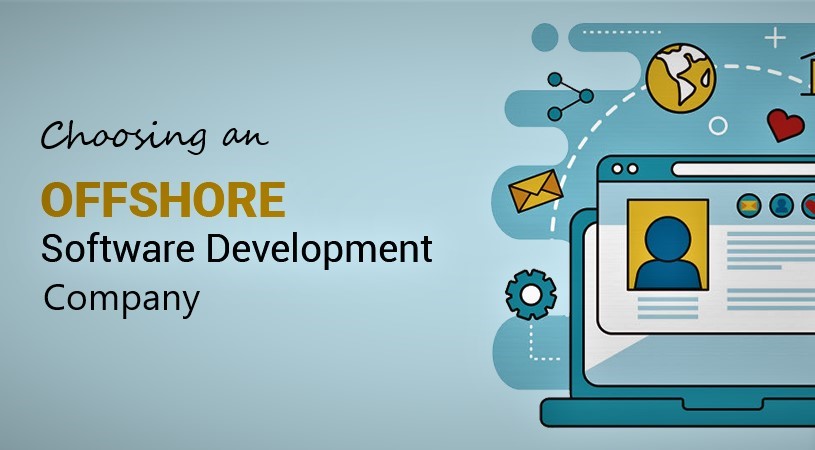Here are 9 essential points to follow when choosing an offshore software development company:
- Define your requirements
- Research and shortlist companies
- Evaluate the company’s technical expertise
- Check portfolio and case studies
- Assess communication and collaboration
- Evaluate pricing and cost structure
- Examine time zone differences
- Check for cultural and language barriers
- Evaluate post-development support and maintenance
1. Define Your Requirements
The main Question to Ask: What am I trying to build?
Defining your requirements is the first crucial step when choosing an offshore software development company. It means clearly outlining what you want to achieve with your project, including the specific goals, objectives, and technical specifications.
This involves identifying the problems you’re trying to solve, the needs you’re addressing, and the desired outcomes.
Think of it like building a house—before hiring a contractor, you need to know what kind of house you want, how many rooms, what features, and what materials. Similarly, before outsourcing software development, you must define your software, its features, and the technologies it should use.
See also: IT Outsourcing: How to Choose the Right Vendor
Key Considerations:
- Purpose & Target Audience – Who will use the software? What problem does it solve?
- Technical Requirements – What programming languages, frameworks, or platforms are needed?
- Timeline & Milestones – What are the deadlines and delivery expectations?
- Budget Constraints – How much can you allocate for development?
- Compliance & Security – Are there any industry regulations to follow?
2. Research and Shortlist Companies
Main Question to Ask: What company suits my needs and budget best?
Researching offshore software development companies involves gathering information to determine the best fit for your project.
After identifying your needs, budget, and tech stack, you can search for companies specializing in your desired areas through online directories, industry reports, or referrals.
Key Evaluation Factors:
- Portfolio & Past Projects – Do they have experience in similar projects?
- Technical Expertise & Certifications – Are they skilled in the required technologies?
- Development Methodologies – Do they follow Agile, Scrum, or Waterfall?
- Communication & Language Proficiency – Can they communicate effectively?
- Pricing Models – Do their cost structures fit your budget?
- Client Reviews & Testimonials – What do past clients say about them?
3. Evaluate the Company’s Technical Expertise
Main Question to Ask: Are they the right people for the job?
Assessing a company’s technical expertise ensures they have the capabilities, skills, and experience needed for your project.
To evaluate their technical proficiency, review:
- Developer Profiles – Education, certifications, and past projects
- Technology Stack – Programming languages, frameworks, and tools used
- Industry Expertise – Specialization in fields like finance, healthcare, or AI
- Certifications & Partnerships – Are they accredited by major tech providers?
4. Check Portfolio and Case Studies
Main Question to Ask: What past experience and success do they have with projects similar to mine?
Reviewing a company’s portfolio and case studies gives insight into their expertise, skills, and experience.
Portfolios typically include project descriptions, screenshots, videos, and client testimonials, helping you assess their work style, communication efficiency, and past success rates.
5. Assess Communication and Collaboration
Main Question to Ask: Can I easily communicate with the development team?
Effective communication and collaboration are crucial for outsourcing success. This step evaluates how efficiently the company interacts with clients and manages projects across different time zones, cultures, and languages.
Why It Matters:
- Ensures your needs are understood
- Provides timely updates on progress
- Helps resolve issues quickly and efficiently
Make sure the company uses communication tools like Slack, Zoom, Asana, or Jira to streamline workflow.
6. Evaluate Pricing and Cost Structure
Main Question to Ask: What are the payment terms, models, and schedules?
Understanding the pricing models and cost structure helps you determine the best value-for-money option while ensuring quality isn’t compromised.
Typical offshore pricing models include:
- Fixed Price – Best for well-defined projects with a clear scope
- Hourly Rate – Suitable for projects with flexible requirements
- Dedicated Team Model – Ideal for long-term development partnerships
7. Examine Time Zone Differences
Main Question to Ask: What are the working hours of the offshore team?
When working with an offshore team, time zone differences impact communication, collaboration, and project timelines.
To minimize delays, choose companies with overlapping working hours or flexible schedules to accommodate real-time discussions.
8. Check for Language and Cultural Barriers
Main Question to Ask: What language do your developers speak?
Language and cultural barriers can affect project efficiency and collaboration. Ensure the offshore team:
- Has strong English proficiency (or another preferred language)
- Understands your work culture and business ethics
- Adapts to your team’s workflow and communication style
This reduces misunderstandings and ensures seamless cooperation.
9. Evaluate Post-Development Support and Maintenance
Main Question to Ask: What happens after the software is launched?
Post-development support and maintenance are crucial to ensuring smooth operation and updates after launch.
Check if the company offers:
- Bug fixes and security patches
- Performance optimization
- Regular software updates
- Ongoing technical support
A reliable offshore development company doesn’t just build your software—they ensure long-term functionality and success.
